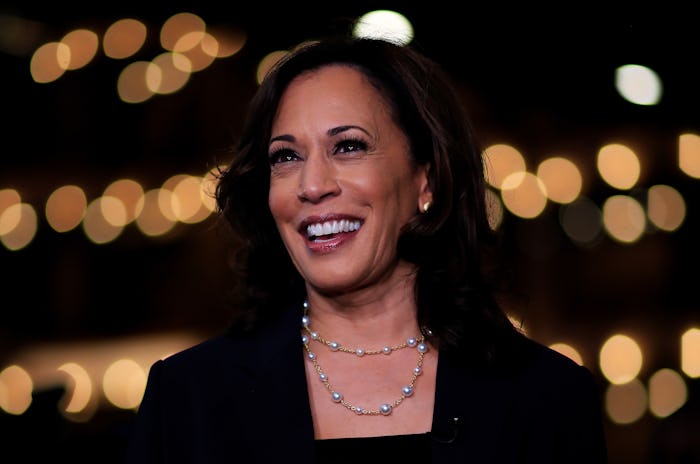News

How Presidential Hopeful Kamala Harris Would Protect Abortion Rights
With the 2020 presidential campaign officially in full swing and the second Democratic debate taking place this week, voters are understandable curious about each Democratic candidate in the running and where they stand on key issues, such as reproductive rights. And one presidential hopeful who's been leading in the polls as of late has an ambitious approach to the divisive issue. Specifically, California Sen. Kamala Harris' plan to protect abortion rights would implement federal oversight of state and local laws.
Harris first outlined her plan for the public on her campaign website in late May 2019, as several states were passing and introducing restrictive and dangerous anti-choice legislation. Harris' plan to protect abortion rights draws inspiration from the 1965 Voting Rights Act, according to Governing, which required states with a history of discriminatory voting laws to get Justice Department approval before implementing any new voting laws. The Voting Rights Act helped block dozens of attempts to pass laws that could have unfairly impacted people of color between 1998 and 2013 alone.
Under Harris' plan — called the Reproductive Rights Act, which her campaign describes as "blocking dangerous and deadly abortion restrictions before they take effect" — any state with a history of passing laws that subvert Roe v. Wade, the landmark Supreme Court case that protects safe and legal access to abortion, would have to seek clearance from the Justice Department before implementing any new laws.
"Under the plan, states and localities will be subject to the preclearance requirement if they have a pattern of violating Roe v. Wade in the preceding 25 years," Harris' campaign site reads "For example, violations will include settlements or final findings by a court that a law or practice runs afoul of Roe... A preclearance requirement will make it harder for states to implement these dangerous and deadly laws and practices."
Without approval, the laws would be unenforceable, according to Politico, which noted that currently the impetus is on abortion rights advocates to tackle restrictive legislation one hurdle at a time. Harris’ plan would put the pressure on states to craft laws that can pass the test, as Politico explained.
Harris also cosponsored a bill in Congress called the Women’s Health Protection Act, which qualifies the methods the DOJ would use to measure proposed laws. According to BuzzFeed News, the legislation would bar states from "banning abortions before fetal viability" and also stop them from "setting unnecessary standards for abortion clinics, equipment and doctors."
Back in May, Laurie Rubiner, a former vice president of public policy for Planned Parenthood, lauded Harris’ plan to Vox, saying: "What is different about this is that she’s really going on the offense. The onus would be on the states and the anti-choice legislators who are passing these laws."
Like most policy plans, Harris' proposal would have to overcome some barriers. As Governing reported, the California senator's proposal would need a "new federal law to give the Justice Department that oversight power," which may be hard to do.
While abortion rights and reproductive freedoms are sure to come up at some point during 2020 presidential race, they were not discussed at length at the first debate in June. But even if they aren't discussed again on July 30 and July 31 at the second Democratic debates on CNN, Harris' stance on protecting abortion rights and her plan to do so is already clear.